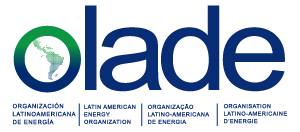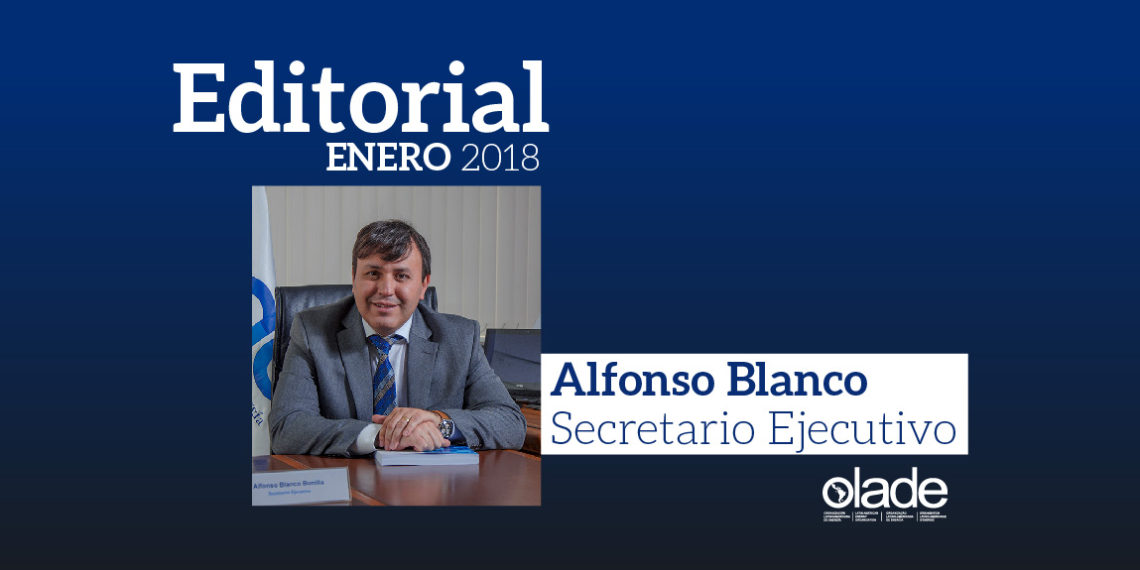From my role as head of OLADE at the end of the first year of management, I observe that Latin America and the Caribbean is immersed in a dynamic process of transformation of its energy sector. The incorporation of new energy sources into the electricity generation matrix; the gradual access and cost-efficient penetration of technologies that influence production, transportation, storage and the way and efficiency with which we transform and consume energy; the existence of natural resources’ reserves in many of our countries that will become differentiating assets for the future energy scenario; the incidence of environmental and climate change-related aspects that are a decisive factor for current and future energy infrastructure projects; the potential to optimize energy systems based on regional complementarity and integration; the greater participation of private agents throughout all the value chains of the energy sector; are some of the factors that are at the heart of this transformation and demand a particular effort on the part of all the actors involved.
Likewise, the economic development experienced by many of our economies in the last ten years has spread throughout our society allowing us to expand and improve the conditions of access to energy for our population, fundamentally improving the living conditions of the most vulnerable segments. Although there are still 21.8 million Latin Americans and Caribbean people without access to electricity, the effort has been profound, providing access to electricity to more than 22 million people in less than 10 years. However, there are very troubling cases, such as Haiti, with more than 70% of its population without access to modern energy sources.
The energy markets also present an impressive dynamism that translates into changes in the structure of the region’s energy matrix. The evolution of oil prices has influenced very differently in the economy of the exporting countries and of those countries that are clearly oil importers, modifying many of the structural aspects of the sector and contracting the activity of the highly oil-income dependent domestic economies. The gradual electrification of the energy demand, the substitution of liquid fuels in electricity generation, the penetration of natural gas as a highly efficient source for electricity generation and to support generation from renewable resources, the participation of the private sector through large business groups that operate throughout the entire chain and that participate in corporate assets in the sector in many of our countries; those are clearly key factors at the level of the future evolution of the energy sector in our region and on which we must work fully with a technical focus. In this regard, the role of the private sector participating in the corporate component of assets in many of the countries of the region confronts us with new forms of integration, integration that takes place through the facts.
Thus, it is the role of governments to work and strengthen the capacity of sector planning to face this challenging situation dominated by changes, competences that are the key to having a robust energy sector that contributes to the development and competitiveness of our economies providing better living conditions to our citizens.
It is therefore OLADE’s genuine role to support and accompany these processes facing the sector, identifying existing barriers and reducing the gaps between our member countries. It is also OLADE’s role to stimulate and promote regional exchange to achieve greater and better integration, bringing together and sharing the capacities available in many of our countries, identifying integration opportunities and promoting innovation as a key element to generate new economic activities associated to the sector with greater added value. Integration that does not refer only to the physical interconnections that make energy exchanges possible, but also those actions aimed at the exchange of experiences, knowledge and technical capabilities.
For all of the above, I understand that we are at a key moment in the history of the sector for Latin America and the Caribbean. OLADE has the capacity; for its trajectory and for the solidity of its institutionality, backed by the conceptual validity of the Lima Agreement; to become the main regional actor for the revitalization and deepening of change processes.
And so, one year from the beginning of my administration, I understand that OLADE has achieved important milestones in many of the areas included in my Strategic Plan for the period 2017-2019.
The current management has begun with tangible results that ensure the fulfillment of a good part of the commitment assumed by the end of the period. But this is due to the work of the team of professionals and collaborators of OLADE who are highly committed to the region and who understand that their work contributes substantially to the development of the sector and the quality of life of our people.
This year awaits us with important challenges and with the same enthusiasm and commitment that has characterized our work. We commit ourselves to continue supporting with our technical contribution to the region. Contribution that has been characterized by being professional, serious, highly committed and always seeking to respect the sovereignty and interests of all our member countries equally.
The support and endorsement of our Member Countries to OLADE’s actions, with a long-term strategic vision, is a crucial element for deepening regional energy integration and showing the entire world that Latin America and the Caribbean is a region that has the capacities to respond effectively to future challenges, achieving greater economic development and improving the quality of life of our peoples; always respecting and being jealous caretakers of our environmental assets.
Receive from Quito, Ecuador a cordial greeting.
Alfonso Blanco
OLADE’s Executive Secretary


